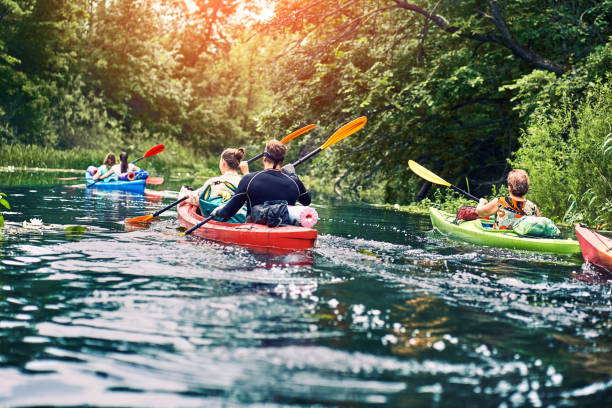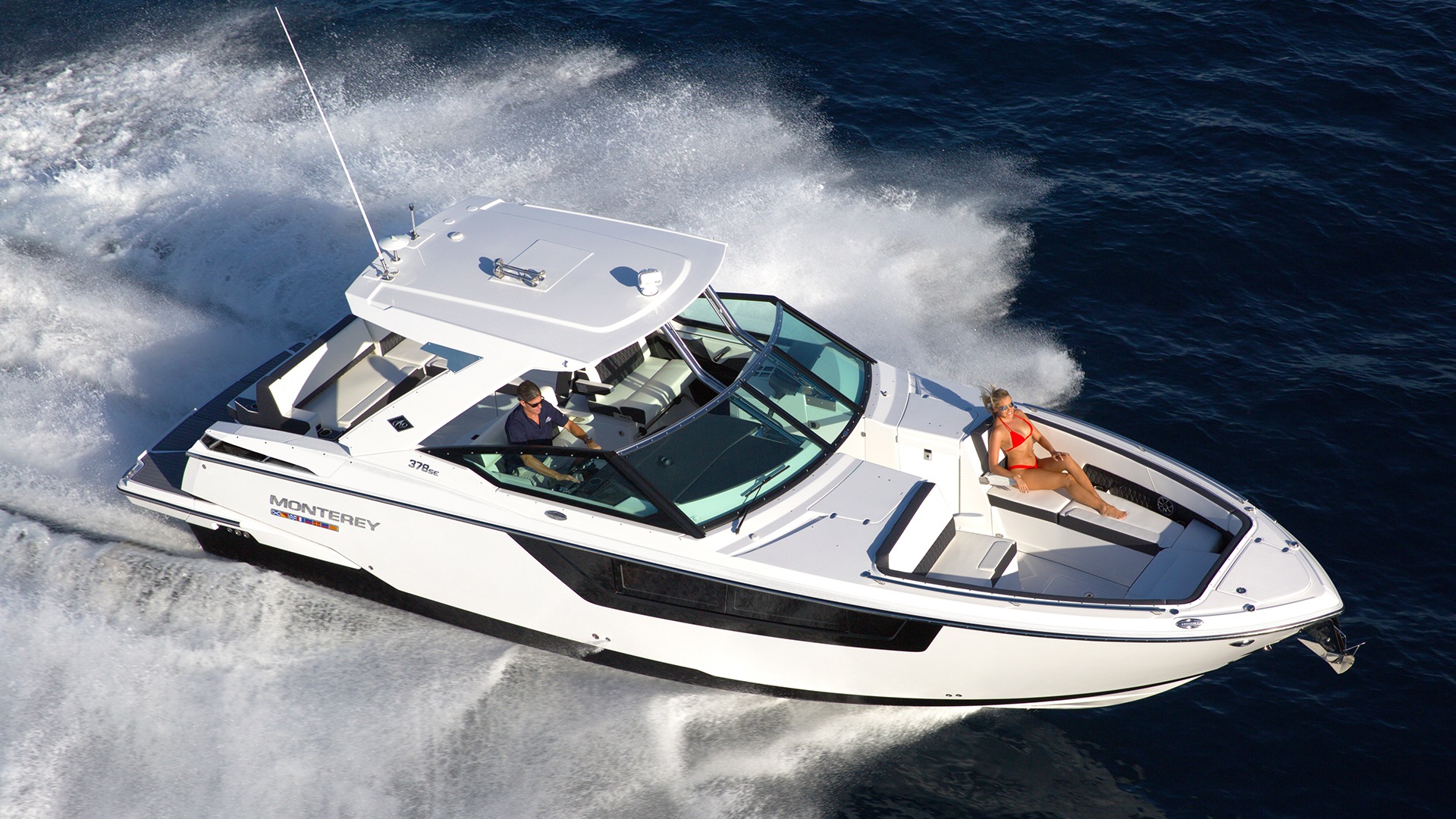Boat Trailers for Sale: Top Picks and Buying Guide 2024
Boat trailers are essential for many boating enthusiasts, making it easy to transport their watercraft to different bodies of water. They come in various types and sizes, designed to accommodate a wide range of boats.
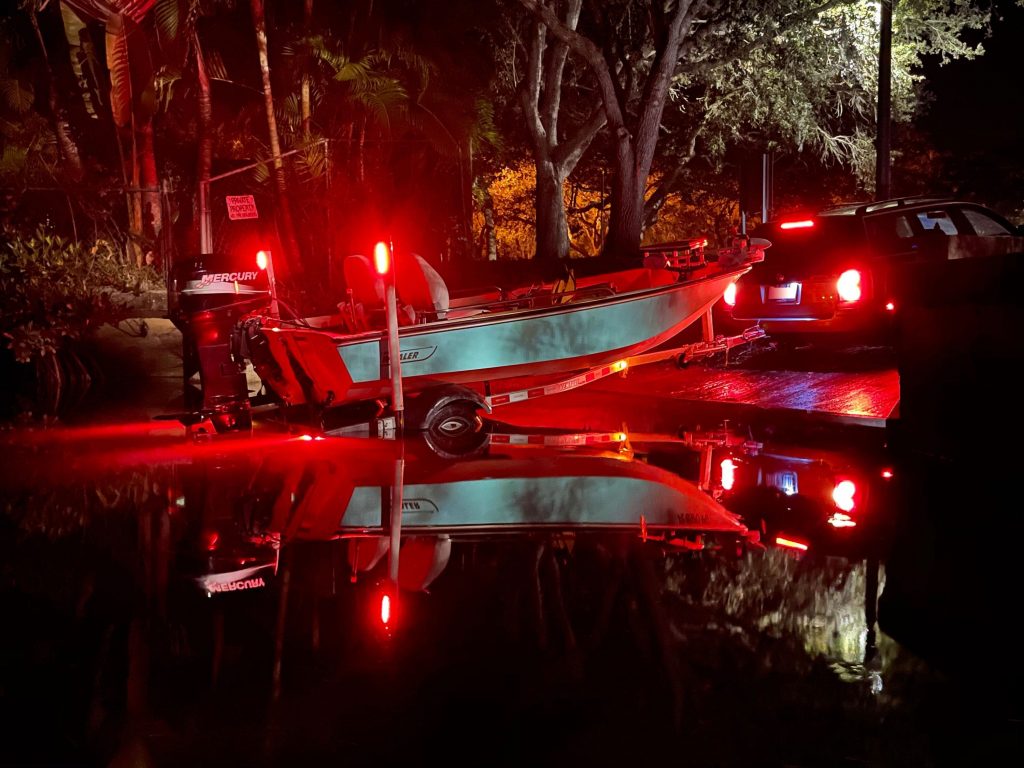
Before diving into the world of boat trailers, it's essential to understand the different options available and the factors to consider when looking for the perfect trailer to meet your specific needs.
Purchasing a boat trailer involves considering key factors such as material, size, and capacity. Some trailers are made from aluminum, galvanized steel, or painted materials, each with its own advantages and drawbacks.
Depending on the type and size of the boat, buyers might need to consider single or multiple axle trailers. Additionally, it's essential to be mindful of maintenance and safety aspects such as choosing a trailer with the appropriate Gross Vehicle Weight Rating (GVWR), considering ease of use, and ensuring anti-corrosion measures are in place.
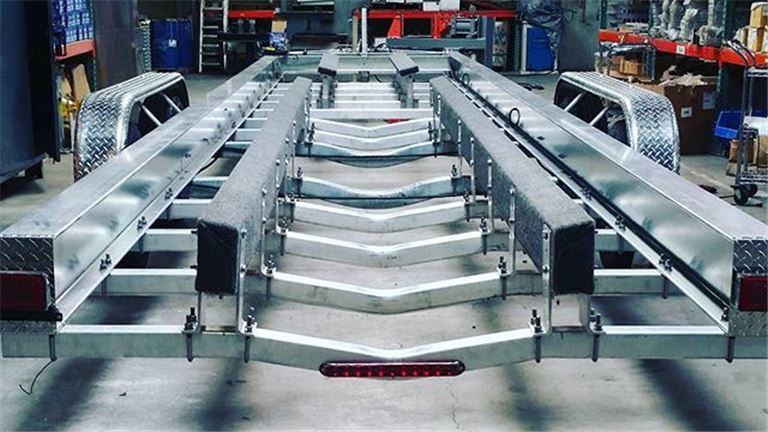
Key Takeaways
- Boat trailers come in various materials and sizes to accommodate a wide range of watercraft.
- When purchasing, considering factors like material, boat size, and capacity are crucial.
- Maintenance and safety aspects, including GVWR and anti-corrosion measures, should be prioritized.
Understanding Boat Trailers
Types of Boat Trailers
Boat trailers come in various designs, tailored to accommodate different boat shapes and sizes. Some of the most common types include bunk trailers, float-on trailers, and roller trailers.
Bunk trailers are specifically designed to cradle and support the boat's hull, making them suitable for heavier boats with flat bottoms.
Float-on trailers are ideal for boats with deep V-shaped hulls and require the trailer to be submerged deep into the water for loading and unloading.
Roller trailers, on the other hand, use rollers to guide and support the boat, making it easy to load and unload in shallow water.
Material Advantages: Aluminum vs. Galvanized
When comparing materials, aluminum and galvanized steel are two popular choices for boat trailers.
Aluminum trailers offer lightweight construction and excellent corrosion resistance, which is especially beneficial in saltwater environments.
Galvanized steel trailers provide a durable, long-lasting option for boat owners, with a zinc coating offering corrosion protection.
Both materials have their advantages and disadvantages, so it's essential to consider factors like your boat's size, weight, and the environment in which you'll be using the trailer.
Selecting the Right Size and Capacity
To select the right size and capacity trailer for your boat, you must first measure your boat's length and weight.
The total length of your boat, from bow to stern, is crucial in determining the size of the trailer you need. The trailer's capacity should match or exceed your boat's weight, including fuel, gear, and any additional equipment.
Additionally, it's essential to consider the hull shape of your boat as it will determine the type of trailer that suits it best. A properly sized trailer ensures safe and efficient transportation of your boat.
Role of Axles in Boat Trailers
Axles play a significant role in the stability and performance of boat trailers.
Single-axle trailers are suitable for smaller boats, while tandem and triple-axle trailers are designed to handle larger and heavier boats.
Single-axle trailers are cost-effective, easy to maneuver and maintain. However, tandem and triple-axle trailers offer greater stability, load-bearing capacity, and more even weight distribution, which is crucial for larger boats.
To select the right number of axles for your boat trailer, consider factors such as boat size, weight, and the intended use of the trailer.
Key Features of Boat Trailers
Brake Systems: Disc vs. Drum
Boat trailers are equipped with either disc or drum brake systems.
Disc brakes offer better heat dissipation and are generally considered more effective for larger boat trailers or frequent use in wet conditions.
Drum brakes, on the other hand, are more affordable and easier to maintain, making them a suitable choice for smaller trailers and occasional use.
It is essential to select a trailer with a reliable brake system to ensure the safety of your boat and tow vehicle.
The Functionality of Rollers and Bunks
When it comes to supporting your boat on the trailer, you will typically find two options: rollers and bunks.
Rollers are round, rotating components that allow for easy boat loading and unloading. They are ideal for boats with rigid hulls, as they provide a higher level of hull support and distribute weight evenly.
Conversely, bunks are long, flat boards covered in carpet or another protective material that cradles the boat's hull.
Bunks offer a more gentle support for boats with delicate or complex hull shapes. Each type has its benefits, so it is crucial to consider your boat's requirements and choose the appropriate trailer.
Importance of Proper Weight Distribution
Proper weight distribution is vital for the performance and reliability of your boat trailer.
Your boat's weight should be evenly distributed on the trailer, preventing undue stress on the tires, axles, and other components.
To ensure proper weight distribution, it is essential to choose the correct-sized trailer for the boat's dimensions and weight, along with appropriate support in the form of rollers or bunks.
Additionally, it is crucial to follow the manufacturer's guidelines for hitch weight to maintain towing stability.
Maintenance and Safety
Keeping Your Trailer in Top Condition
Regular maintenance is key to keeping your boat trailer in top condition.
It's essential to inspect your trailer on a regular basis, especially before and after each boating trip.
One important aspect of maintenance is lubricating the safety lube axles, which can provide an extra margin of protection and significantly increase bearing life.
Another crucial part of trailer maintenance is checking the tongue jacks.
These play a significant role in raising and lowering the trailer hitch and should be inspected regularly for proper function and corrosion resistance.
When it comes to trailer materials, choosing options like galvanized, powder-coated, aluminum, wet-painted systems, and "Tuff Coated" Polyurea coatings can prolong the life of your trailer by providing superior corrosion resistance.
It's also a good idea to perform regular checks on the trailer's lights, wiring, and tires. Make sure they are all in good working condition.
Essential Safety Checks for Trailers
Safety should be a top priority when it comes to boat trailers.
Conducting regular safety checks can help identify potential issues before they become problems. Here are some essential safety checks to perform:
- Coupler and hitch: Inspect the coupler and hitch for signs of wear, corrosion, or damage. Make sure the hitch ball and coupler are of matching sizes and properly secured.
- Bearings: Check the bearings for signs of wear and ensure they are properly sealed. Proper sealing can prevent water intrusion and prolong the life of the bearings, as mentioned in Integrity Trailers.
- Brakes: If your trailer has hydraulic brakes, inspect the brake actuator for signs of wear or damage, as AmeraTrail trailers feature hydraulic brake actuators. Make sure the brake fluid is at the proper level and free of contaminants.
- Suspension: Examine the suspension components for signs of wear, corrosion, or damage. This includes checking the leaf springs, bolts, hangers, and shackles.
- Safety chains: Inspect the safety chains for proper attachment and signs of wear or damage. Ensure they are of adequate strength and length to secure the trailer to the tow vehicle.
Enhancements and Accessories
Customizing Your Trailer with Accessories
When it comes to boat trailers, selecting the right accessories can significantly improve your trailering experience.
Many boat owners opt for customizations that cater to their specific needs. One popular accessory to consider is ramps for easier boat loading and unloading.
Installing ramps makes the process more convenient and less taxing on your physical strength.
Roller trailers are another useful customization. They come equipped with multiple rollers that support the boat's hull, making it easier to load and unload, especially in shallow water.
Roller trailers offer a smoother transition in and out of the water compared to traditional bunk trailers.
Upgrading your trailer with LED lights not only enhances its appearance but also improves visibility when towing, particularly during night-time or in low-light conditions.
These energy-efficient lights last longer and provide better illumination than traditional incandescent bulbs. For more information, you can visit Boat Trailer Parts - Planet's Largest Selection.
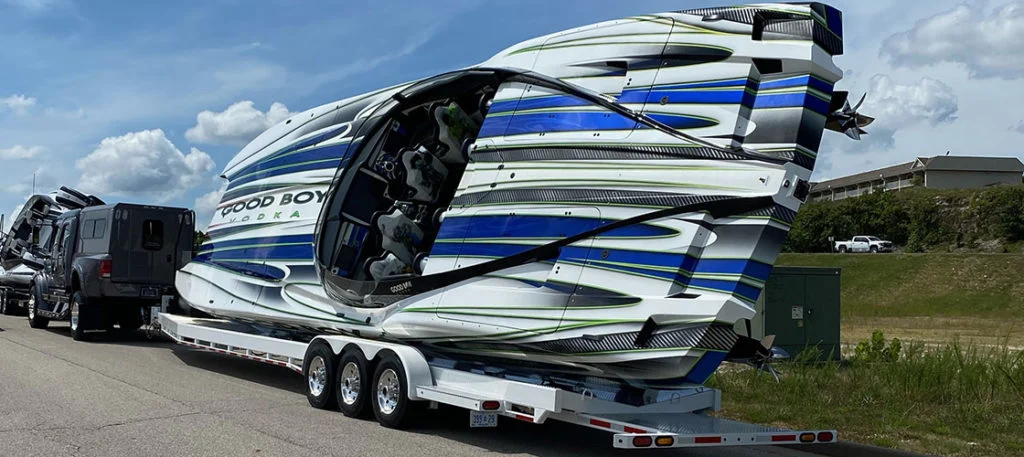
Upgrade Options for Performance and Safety
Safety, comfort, and performance are important aspects to consider when upgrading your boat trailer.
Replacing standard wheels with aluminum wheels can enhance your trailer's appearance and improve its performance on the road with their lightweight and rust-resistant properties.
In addition to these customizations, you can also explore various upgrade options focused on enhancing performance and safety:
- Electric winches help avoid the physical strain associated with manual winches, making it easier to load your boat onto the trailer.
- Trailer brakes provide better control and stopping power, especially for larger and heavier boats.
- Spare tire carriers ensure you have a spare tire on hand in case of emergencies, cutting downtime when facing a flat tire.
Purchasing Considerations
When looking for boat trailers for sale, there are several factors to consider. This section will provide guidance on whether to purchase a new or used trailer and discuss top manufacturers and brands in the industry.
New vs. Used Trailers
The decision to purchase a new or used boat trailer largely depends on your budget and personal preferences.
New trailers offer the advantage of a manufacturer's warranty and the assurance that the trailer is in optimal condition. However, new trailers are typically more expensive than used ones.
On the other hand, used trailers can provide significant savings, but the buyer should carefully inspect the trailer for any potential issues, such as rust or damaged components. Test the lighting on used trailers to ensure they are functioning correctly, for instance, by checking if the LED lighting is working well.
Pros of New Trailers:
- Manufacturer's warranty
- No history of wear and tear
- Latest features and technology
Pros of Used Trailers:
- Lower cost
- Potential for negotiation on price
- Environmentally friendly (reduces waste)
Top Manufacturers and Brands
There are several reputable boat trailer manufacturers in the market, and some of the top brands include Continental Trailers, EZ Loader, and Venture. Continental Trailers has a wide range of aluminum and galvanized steel trailers suitable for various boat sizes. They are known for their durability and quality construction.
EZ Loader is another popular boat trailer brand that focuses on quality and craftsmanship. They offer both aluminum and galvanized steel trailers, with options for customized configurations to perfectly fit your boat. Additionally, their trailers are designed with user-friendly features.
Venture is another reliable boat trailer manufacturer, known for their high-quality, single-axle boat trailers. With a price range of $700 to over $4,000, Venture provides cost-effective solutions for boat owners looking for affordable trailers with a reliable reputation.
Specialized Trailers
Trailers for Saltwater Use
When using a boat trailer in saltwater environments, corrosion resistance is a critical factor.
Saltwater can be harsh on the trailer's metal components, leading to premature wear and tear. One option for protecting your trailer from saltwater damage is to choose a watercraft trailer specially designed for use in these conditions. These trailers often feature corrosion-resistant materials such as aluminum or galvanized steel.
Additionally, it's essential to maintain your trailer regularly by thoroughly rinsing it with fresh water after each use in saltwater.
Be sure to also inspect your trailer frequently for signs of corrosion or other damage that could be exacerbated by exposure to saltwater. Taking these precautions will extend the life of your trailer, especially when used predominantly in saltwater locations.
Trailers for Specific Boat Types
Different boat types require specialized trailers to accommodate their unique shape, size, and weight. Some popular boat types with specific trailer needs include:
- Fishing Boats: Fishing boats, particularly those with a specific line or type of fishing, may require custom-fitted trailers. Features such as specialized bunks and rollers can be tailored to the boat's hull shape, providing a secure transport solution.
- Inboard Wakeboard Boats: These boats typically have a unique hull shape and often require a trailer with a custom support system, such as the 2024 VENTURE COM-6000 Aluminum Ski/Inboard Wakeboard Boat Trailer.
- Extendable Trailers: For oversized or industrial watercraft, extendable trailers like the XL Hydraulic Detachable Extendables offer adjustable length to accommodate the boat's dimensions. They often feature a hydraulic detachable gooseneck, allowing easy loading and unloading of heavy boats.
- Personal Watercraft (PWC) Trailers: Smaller, lighter watercraft such as jet skis require specialized PWC trailers that can accommodate one or multiple units. These trailers are specifically designed for the unique shape and dimensions of personal watercraft.
Trailers for Various Boating Activities
Whether you enjoy fishing, recreational boating, or watersports, choosing the right trailer for your boat is key to a safe and enjoyable experience. In this section, we'll explore different trailer options tailored to specific boating activities.
Trailers for Fishing Enthusiasts
Fishing enthusiasts often have boats with unique hull designs, such as flat-bottomed boats or V-hulls.
When looking for a boat trailer, consider investing in one that provides proper support for your specific boat type.
For instance, skiff and jon boat trailers are ideal for lightweight, small boats and can be found on Venture Trailers.
It's essential to also consider your boat's weight, including the engine, fuel, and onboard gear, to find a trailer that can safely carry the load. A useful resource for comparing new and used boat trailers for sale based on their carrying capacity is TrailersUSA.
Options for Recreational and Sports Boating
For recreational boaters and water sports enthusiasts, features such as easy loading and unloading can make a big difference.
Roller trailers are excellent for handling shallow ramps or low tides, as seen on Venture Trailers.
Likewise, pontoon trailers are perfect for supporting boats between 16 to 26 feet in length, offering enhanced stability.
When choosing a trailer for deck boats, consider the boat's overall shape and weight distribution.
A guide on how to choose the perfect boat trailers suggests selecting a trailer that cradles the hull to ensure secure transport while evenly distributing weight.
Remember that the right boat trailer will enhance your boating experience, making transportation and storage safer and more efficient.
Storing Your Boat Trailer
Long-Term Storage Solutions
When it comes to long-term storage for your boat trailer, choosing the right solution is crucial to maintaining its finish and overall durability.
One option is to use an indoor storage facility that can provide a secure and controlled environment, protecting your boat trailer from the elements and potential theft.
Another approach is to store the trailer outdoors but using proper weatherproof covers or tarps to shield it from harsh weather conditions.
It's also essential to keep your trailer on a flat and well-drained surface to prevent water accumulation and corrosion.
To ensure long-lasting storage, consider the following maintenance tips:
- Clean the trailer thoroughly before storing it
- Check the tires and lubricate the ball bearings
- Inspect the trailer coupler and hitch lock
- Test the boat trailer plugs and wiring system
Protecting Your Trailer During Off-Season
During the off-season, taking extra precautions can help protect your boat trailer, extending its life and preserving its finish.
To avoid damage to tires and springs, it's a good practice to block the trailer frame, taking the weight off the springs and tires.
Here is a list of essential steps to take when storing your boat trailer for the off-season:
- Inspect the trailer winch and winch strap
- Thoroughly clean the trailer, removing any dirt, salt, and debris
- Apply a protective layer of wax or polish, focusing on the trailer's exposed metal parts
- Tighten any loose fittings, including bolts and nuts
- Ensure all electrical connections are clean and dry
Buying Boat Trailers in Florida
Local Market Overview
Florida is a popular destination for boating enthusiasts, making it a suitable place to find a variety of boat trailers for sale.
Some well-known boat trailers for sale in Florida include options like the 2024 Palm Beach Trailers DA2610, 2024 Venture COM-5300 Aluminum Tandem Torsion Axle, and 2024 LOAD RITE TRAILERS BA215200102TB1 Aluminum Bass Boat Trailer.
In Florida, there are two main types of boat trailers: bunk trailers and float trailers.
Bunk trailers provide boats under 20 feet with transport, and can also be used for dry land storage. Float trailers, on the other hand, serve as large bunk trailers submerged into the water for easy loading and unloading.
When shopping for a boat trailer in Florida, you may come across single-axle and tandem-axle options.
Single-axle trailers are typically more affordable and easier to maneuver, while tandem-axle models offer increased stability and weight capacity.
Popular Florida boat trailer dealers include:
Regulations and Compliance
Florida has specific regulations for boat trailers which must be followed when purchasing, registering, and using a boat trailer. It is essential to comply with these rules to avoid fines and penalties.
- Registration and Title: Boat trailers weighing over 2,000 lbs are required to be titled and registered with the Florida Department of Highway Safety and Motor Vehicles (FLHSMV).
- Safety Equipment: Boat trailers in Florida need to be equipped with proper safety equipment such as:
- Reflectors
- Brake lights and turn signals
- Mirrors
- Safety chains
- Weight Limits and Towing: Weight limits on boat trailers must be followed according to Florida law. Trailers with a capacity exceeding 3,000 lbs must be equipped with a breakaway system. Additionally, trailers with a gross weight of 3,000 lbs or more must have brakes on all wheels.
- Tire Maintenance: Tires should adhere to the manufacturer's specifications for weight capacity, inflation, and other guidelines.
Transportation and Handling
Navigating with a Trailer on the Road
When towing a boat trailer, it's important to take the combined weight of the boat, trailer, and towing vehicle into consideration. This will help ensure safe and efficient transportation.
To provide support and ease of movement, many boat trailers come equipped with rollers, which help to reduce friction and make it easier to maneuver your boat onto and off the trailer.
Additionally, when navigating with a boat trailer on the road, make sure your towing vehicle has adequate braking power.
Many boat trailers now feature disc brakes, which offer improved stopping power compared to traditional drum brakes.
Disc brakes are particularly beneficial when towing heavy loads, as they provide more consistent braking performance.
Here's a list of important factors to consider when navigating with a boat trailer on the road:
- Combined weight of boat, trailer, and towing vehicle
- Rollers for support and ease of movement
- Adequate braking power, with disc brakes preferred
Loading and Unloading Your Boat
Loading and unloading your boat on a trailer can be a challenging process, particularly for first-time boat owners. It's important to have a well-defined procedure in place to ensure safe and efficient handling.
The use of proper towing line can assist in loading and unloading by providing added support and control.
In order to successfully load your boat onto a trailer, follow these steps:
- Attach towing line from the boat to the towing vehicle
- Slowly back the trailer into the water
- Use the rollers to guide and support the boat as it is loaded onto the trailer
- Once the boat is in the correct position, secure it to the trailer using appropriate straps and fasteners
- Carefully move the towing vehicle forward, pulling the trailer and boat out of the water
Unloading a boat from a trailer follows a similar process, in reverse order:
- Attach towing line from the boat to a suitable dock or mooring point
- Slowly back the trailer into the water
- Release the boat from the trailer by removing straps and fasteners
- Use the rollers and towing line to guide the boat off the trailer and into the water
- Once the boat is safely in the water, disconnect the towing line and move the trailer away
Frequently Asked Questions
How to determine the appropriate trailer size for a specific boat length?
To determine the appropriate trailer size for a specific boat length, you need to measure the boat's overall length, including any extensions like swim platforms or outboard motors.
In addition, consider the boat's dry weight and gross vehicle weight rating (GVWR) to ensure the trailer can handle the load.
It's also essential to account for the clearance distance required for your particular boat.
Most trailers have an adjustable tongue length, which allows for proper sizing. When in doubt, consult the boat manufacturer's guidance or seek advice from an experienced dealer.
What factors should be considered when buying a used boat trailer?
When buying a used boat trailer, consider factors like its structural integrity, weight capacity, tire condition, wheel bearings, lights, and overall condition.
Look for any signs of rust or damage and ensure that the trailer has proper registration, title, or documentation.
Additionally, inspect the braking system, couplers, and safety chains to ensure they're functioning correctly.
What is the average lifespan of a boat trailer?
The average lifespan of a boat trailer varies depending on factors such as usage, maintenance, environmental exposure, and storage.
If well-maintained and protected from the elements, a boat trailer can last more than 10 years.
Regular inspections, proper cleaning, and timely repairs can significantly impact the trailer's longevity.
How can one identify the differences between roller and bunk type boat trailers?
Roller boat trailers feature numerous rollers along their length, which help reduce friction when loading or unloading the boat on the trailer.
These trailers are more suited for boats with a deep V or round-bottom hull shape.
In contrast, bunk trailers have carpeted wooden supports that provide a larger surface area for the boat to rest on and are ideal for flat-bottom boats.
Each type has its advantages, so choose based on your boat's hull shape and your launching requirements.
What steps should be taken to ensure a boat trailer is roadworthy?
To ensure that a boat trailer is roadworthy, verify that the tires are in good condition. Also, make sure that they are properly inflated and have adequate tread depth.
Inspect the wheel bearings for signs of wear or damage. Then, check all lights and wiring for proper functioning. This includes brake lights, turn signals, and side-marker lamps.
Finally, inspect the braking system, hitch, couplers, and safety chains for damage or deterioration. Regular maintenance and timely repairs will keep your boat trailer roadworthy.
How does the weight capacity of a boat trailer affect its compatibility with different boats?
A boat trailer's weight capacity determines the maximum load it can handle safely.
Compatibility with different boats depends on the boat's dry weight, GVWR, and any additional gear loaded on the boat.
Overloading a trailer can lead to severe issues like trailer damage, premature tire wear, or even a road accident.
Always choose a trailer with a weight capacity suitable for your boat's specific needs to ensure safe towing and transportation.
Charlie is Editor-in-Chief of Sea Magazine

